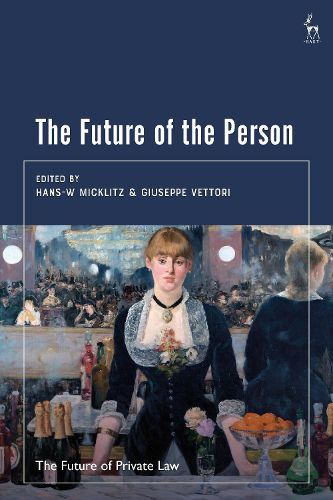Readings Newsletter
Become a Readings Member to make your shopping experience even easier.
Sign in or sign up for free!
You’re not far away from qualifying for FREE standard shipping within Australia
You’ve qualified for FREE standard shipping within Australia
The cart is loading…






This book rigorously debates the notion of the person, a fundamental concept which underpins national private law orders worldwide.
In the 20th century, the unity of the person came under pressure - firstly through the rise of labour law and then secondly (post-World War II) through consumer law. The book moves this debate on, exploring the ongoing fragmentation of the concept of the person and the unique challenges that this gives rise to, and suggesting how this might impact on the future of private law. The book asks three questions:
*are the 'subject' of the 19th-century Codes or the 'person' of 20th-century constitutions useful categories of reference for the person?
*could fundamental rights, currently central to the notion of the person, be replaced by forms of the 'impersonal'?
*how, and why, should subjectivities be rethought in the age of infocracy and autocracies?
Thought-provoking and paradigm-shifting, this is a fascinating examination of the bedrock of private law.
$9.00 standard shipping within Australia
FREE standard shipping within Australia for orders over $100.00
Express & International shipping calculated at checkout
This book rigorously debates the notion of the person, a fundamental concept which underpins national private law orders worldwide.
In the 20th century, the unity of the person came under pressure - firstly through the rise of labour law and then secondly (post-World War II) through consumer law. The book moves this debate on, exploring the ongoing fragmentation of the concept of the person and the unique challenges that this gives rise to, and suggesting how this might impact on the future of private law. The book asks three questions:
*are the 'subject' of the 19th-century Codes or the 'person' of 20th-century constitutions useful categories of reference for the person?
*could fundamental rights, currently central to the notion of the person, be replaced by forms of the 'impersonal'?
*how, and why, should subjectivities be rethought in the age of infocracy and autocracies?
Thought-provoking and paradigm-shifting, this is a fascinating examination of the bedrock of private law.